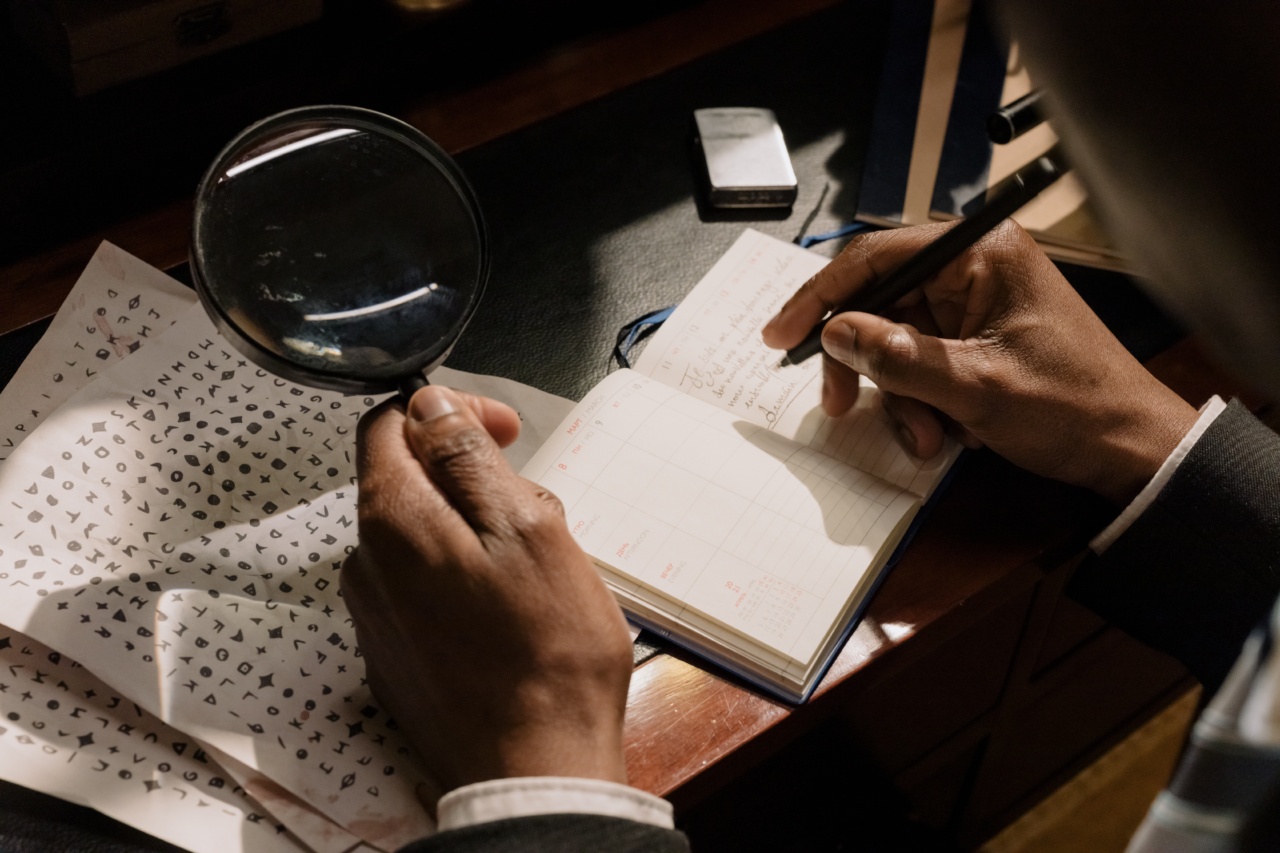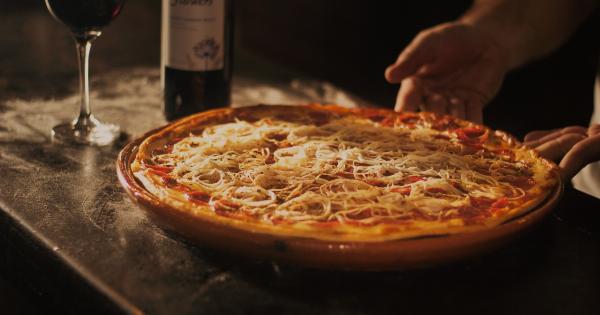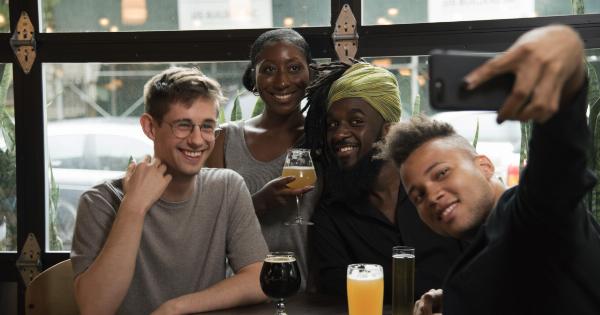In a world obsessed with decoding the secrets of the human genome and satisfying our cravings for a perfect cup of coffee, a fascinating study has emerged that intertwines these two seemingly unrelated subjects.
Scientists have delved deep into the genetic makeup of an individual to investigate the role it plays in a passionate love affair with espresso. The findings are not only intriguing but potentially transformative, shedding light on how our DNA may influence our coffee preferences and experiences.
The Unique Connection Between Genes and Coffee
For many, the sensory experience of sipping a rich, velvety espresso is akin to a decadent ritual. It tantalizes our taste buds, boosts our energy, and even enhances our mood. But what if there is more to our love for espresso than meets the eye?.
Researchers have long been captivated by the notion that our genetic makeup may impact our sensory perceptions, including the way we taste and appreciate different flavors.
One such flavor is coffee, an immensely complex beverage with over 1,000 flavor compounds. Could our genes, specifically those responsible for taste receptors, hold the key to our affinity for espresso?.
The Science Behind Coffee Taste Perception
Before we dive into the realm of DNA decoding, it is important to understand how our taste perception works, especially when it comes to coffee.
Taste buds present on our tongues contain receptors which detect different flavors, such as sweetness, bitterness, acidity, and umami. These receptors convey signals to our brain, allowing us to experience and interpret the taste of various substances.
Interestingly, the perception of bitterness varies significantly among individuals. For instance, some people find coffee to be delightfully bitter, while others may consider it repulsive or overwhelmingly harsh.
Variations in taste receptor genes, particularly TAS2R38, have been linked to differences in coffee preference and sensitivity to bitterness.
Unraveling the Espresso-Genome Connection
Building on the foundation of taste receptor genetics, scientists embarked on a groundbreaking journey to decipher the connection between our DNA and our love for espresso.
The study involved DNA sequencings of individuals who self-identified as espresso aficionados, along with those who were not particularly fond of the strong brew.
As the genetic data flowed, patterns started to emerge. Researchers found that certain genetic variants were more prevalent in espresso lovers compared to non-enthusiasts.
Specifically, variants in genes related to taste receptors, such as TAS2R38 and other bitter taste receptor genes, showed a higher frequency in the espresso-lover group.
These findings strongly suggest that our genetic makeup influences our affinity for espresso. It is, however, important to note that genetic factors are not the sole determinants of our preferences.
Environmental factors, upbringing, cultural influences, and personal experiences also play an instrumental role in shaping our coffee preferences.
The Bitterness Perception Gene: TAS2R38
TAS2R38, commonly referred to as the bitterness perception gene, has gained significant attention in the realm of coffee genetics. This gene encodes a taste receptor that is highly responsive to bitter compounds, such as those found in coffee.
Within the TAS2R38 gene, three main variations, or alleles, have been identified: the PAV (proline-alanine-valine), AVI (alanine-valine-isoleucine), and AAV (alanine-alanine-valine) alleles.
The presence of these alleles affects how an individual experiences bitterness.
Studies have shown that individuals who carry two copies of the PAV allele tend to be more sensitive to the bitterness of coffee.
As a result, they may perceive espresso as excessively bitter, leading to a preference for milder, less intense coffee flavors. On the other hand, those with two copies of the AVI or AAV alleles are generally less sensitive to bitterness, allowing them to savor and appreciate the complex flavors of espresso more fully.
The Role of Other Genetic Variants
While TAS2R38 is undeniably at the forefront of the espresso-genome connection, other genetic variants also contribute to our love for this beloved caffeinated elixir.
The bitter taste receptor genes TAS2R3, TAS2R4, and TAS2R14 have been implicated in bitterness perception and coffee preferences.
Furthermore, various genes involved in the metabolism of caffeine, such as CYP1A2, impact our response to the stimulating effects of coffee.
Genetic variations in these genes can determine an individual’s ability to metabolize caffeine efficiently, affecting their susceptibility to the jitters, sleep disturbances, and other coffee-induced effects. Those who rapidly metabolize caffeine may have a higher tolerance for espresso and, therefore, a stronger attraction to its invigorating qualities.
Cultivating Coffee Preferences: Nature versus Nurture
While our DNA plays a significant role in shaping our affinity for espresso, it is essential to recognize that our coffee preferences are not solely determined by our genetic makeup.
The interplay between nature and nurture heavily influences our palate and the beverages we choose to indulge in.
Environmental factors, such as cultural norms and societal influences, leave an indelible mark on our taste preferences.
Growing up in a coffee-loving family or being exposed to the coffee culture from an early age can shape our preferences and create a familiarity with the taste of espresso. Similarly, societal trends and marketing campaigns can sway our choices, encouraging us to experiment with artisanal coffee creations and develop an acquired taste for espresso.
Personal Experiences and Acquired Tastes
Our personal experiences with coffee also mold our preferences.
Sipping a masterfully brewed espresso during a heartwarming conversation, or discovering a hidden gem of a coffee shop in a foreign city, can create lasting associations and positive emotional experiences. These memories contribute to our love for espresso, independent of our genetic predispositions.
Additionally, our acquired tastes deserve recognition. Over time, our taste buds can adapt and refine their sensitivity, allowing us to appreciate and enjoy flavors that may have seemed unpleasant or overpowering initially.
This adaptability extends to espresso as well, with repeated exposure often leading to an acquired taste for its bold, complex flavors.
Implications and Future Prospects
Understanding the link between our DNA and our love for espresso offers insights that extend beyond the realm of coffee appreciation.
It opens doors to personalized coffee experiences that cater to individual preferences, providing a more fulfilling and enjoyable cup of coffee.
Through genetic testing and analysis, coffee enthusiasts may soon be able to access coffee blends tailored to their genetic predispositions.
By deciphering an individual’s taste receptor gene variants, coffee companies can create personalized coffee blends with optimal bitterness levels, catering to each individual’s unique palate.
This emerging field of study also stimulates further research into the broader impact of genetics on our sensory experiences.
As we unravel the intricate connections between our DNA and our perception of taste, smell, and other sensory stimuli, we gain a deeper understanding of what makes us uniquely human.
Unlocking the Secrets of Your Coffee DNA
While the concept of decoding our DNA to reveal our coffee preferences and designing personalized coffee blends is undoubtedly captivating, it is important to recognize that we are still in the early stages of this research.
Various aspects need to be further explored, such as the influence of genetic variations on preferences for different coffee brewing methods, milk preferences, and the understanding of individual taste thresholds.
Nevertheless, the journey to deciphering the espresso-genome connection has unveiled a wealth of knowledge and potential applications that will reshape the future of coffee enjoyment.
The intersection of science and coffee promises an exciting journey, inviting us to explore the depths of our genes as we savor each sip of our beloved espresso.





























